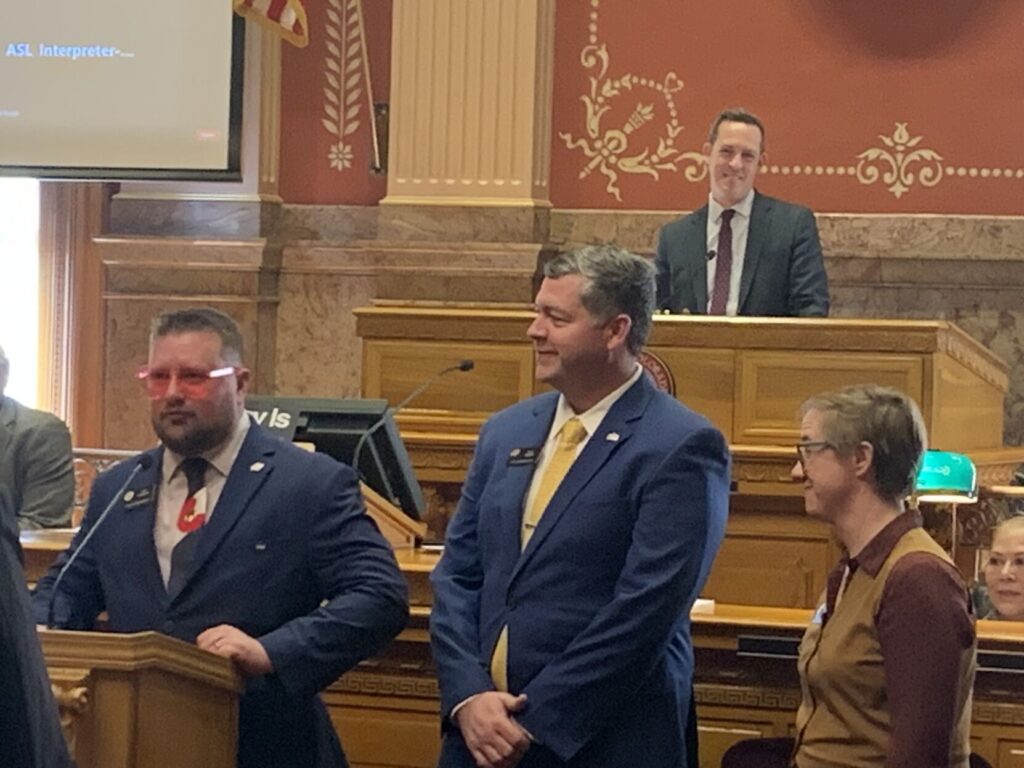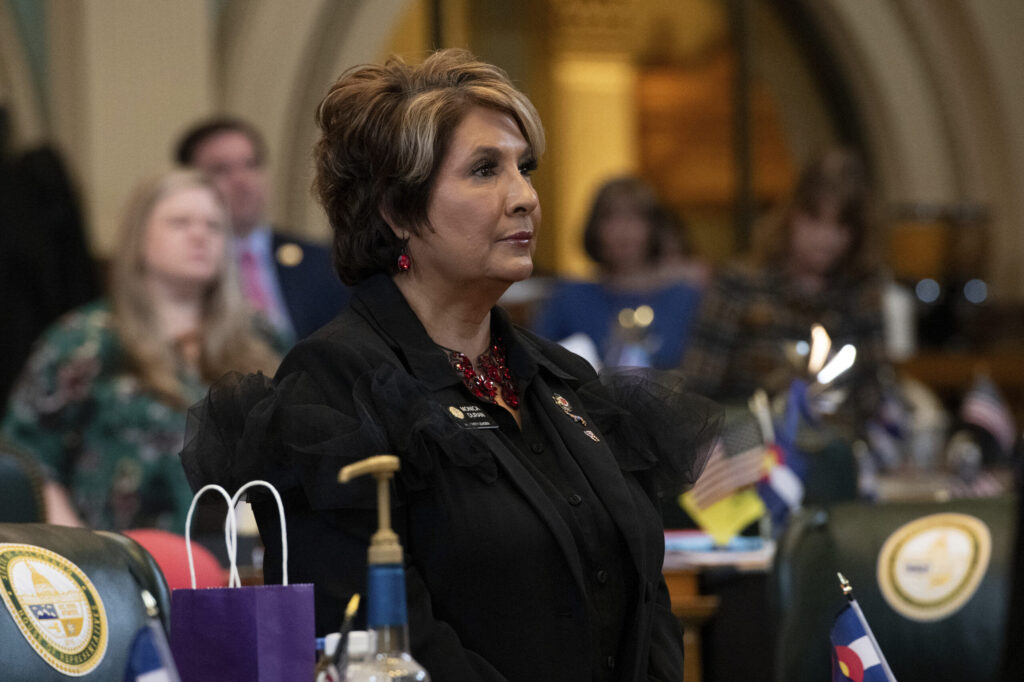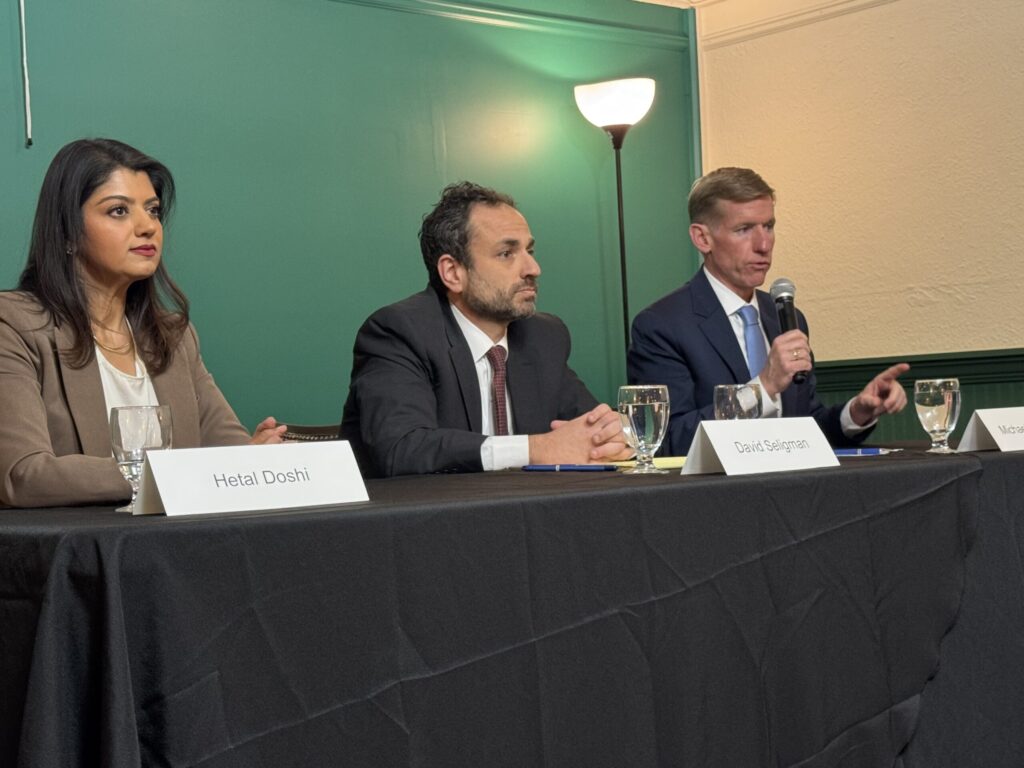Colorado moves to strengthen Equal Pay for Equal Work Act

Colorado businesses have been required to provide equal pay to employees performing the same work since 2021. But many women say they still face pay discrimination in the workplace.
Lawmakers are trying to address the gaps with Senate Bill 105, which cleared its last major legislative hurdle on Monday. If enacted, the bill would implement measures to enforce the state’s existing Equal Pay for Equal Work Act and make other updates to the law.
The House passed SB 105 on Monday, following its passage in the Senate last month. The bill will now go back to the Senate to approve changes from the House, and then to Gov. Jared Polis for final consideration.
“It took us 39 years to get to the place that we got to in 2019,” said bill sponsor Rep. Serena Gonzales-Gutierrez, D-Denver. “This bill is taking some of the things we’ve learned over the last few years with the implementation of the Equal Pay for Equal Work Act and clarifying some things.”
Colorado passed the Equal Pay for Equal Work Act in 2019. The law, which took effect on Jan. 1, 2021, included several mandates intended to even the playing field for workers, such as requiring employers to notify employees of promotion opportunities, including pay or a pay range in job postings and allowing employees to sue employers for gender-based pay discrepancies.
SB 105 would require the Department of Labor and Employment to investigate pay inequities and enforce equal pay mandates. The bill would also extend the maximum back pay period for pay inequalities to six years and allow employers to not notify employees about career development changes that are not technically promotions or jobs that other candidates could be considered for.
The bill passed the House in a 41-21 vote, and the Senate in a 24-11 vote.
The votes were almost entirely along party lines, with all but one Republican – Sen. Perry Will of New Castle – voting against the bill, and all but two Democrats voting in support of it: Reps. Shannon Bird of Westminster and Bob Marshall of Highlands Ranch.
Many critics raised concerns about negative effects the original Equal Pay for Equal Work Act had on businesses and workers, specifically pointing to the requirement that employers include pay or pay ranges in job postings.
In 2021, the Wall Street Journal reported that national companies excluded Coloradans from applying for remote work positions because of this requirement.
“A bill that is supposed to be helping close the gender gap in worker pay could be making it harder for Colorado women to find a job,” said Sen. Barbara Kirkmeyer, R-Brighton. “Most remote workers are women, so why wouldn’t we want to try to fix this?”
The House amended the bill to exempt out-of-state companies with fewer than 15 employees working remotely in Colorado, only making those companies provide notice of remote job opportunities. The exemption is set to last through July 1, 2029.
Republicans said this change didn’t go far enough.
Rep. Ken DeGraaf, R-Colorado Springs, said the bill would now incentivize companies to only employ up to 15 Coloradans remotely to avoid falling under the law.
“It’s a good indication of the unintended consequences that legislation like this will have,” DeGraaf said. “If this is good for business, we don’t have to do it. The free market will tend to do it by itself.”
Democrats defended the bill, saying it is needed as some businesses aren’t following the requirements under the Equal Pay for Equal Work Act.
In 2021, women working full-time in Colorado were paid 83% of what men earned, according to the Women’s Foundation of Colorado. That’s higher than 78% in 2020 before the Equal Pay for Equal Work Act took effect, but still falls short of the state’s all-time high of 86% in 2019, according to the U.S. Bureau of Labor Statistics. The difference is exacerbated for women of color.
During public hearings on the bill, Michelle Siemer said, after working at the same company for over 20 years, she was still paid less than the men she supervised.
Siemer, an Eagle County mother of three, said she spent decades collecting accolades and additional responsibilities at her job. But while Siemer had the same duties as many of the male senior managers at her company, she remained a manager, and her pay reflected the lower status. Siemer said she advocated for promotions and raises but was repeatedly denied, leading her to leave the company last year.
“This is clearly an issue that impacts Colorado families in every corner of our state,” Gonzales-Gutierrez said. “Almost half of our workforce is women, and many of them are primary breadwinners for their families.”
“This is the right thing to do at this point,” she said.
Gonzales-Gutierrez sponsored the original Equal Pay for Equal Work Act in 2019, along with other SB 105 co-authors Sen. Jessie Danielson, D-Wheat Ridge, and Sen. Janet Buckner, D-Aurora. SB 105 is also sponsored by Rep. Jennifer Bacon, D-Denver.














